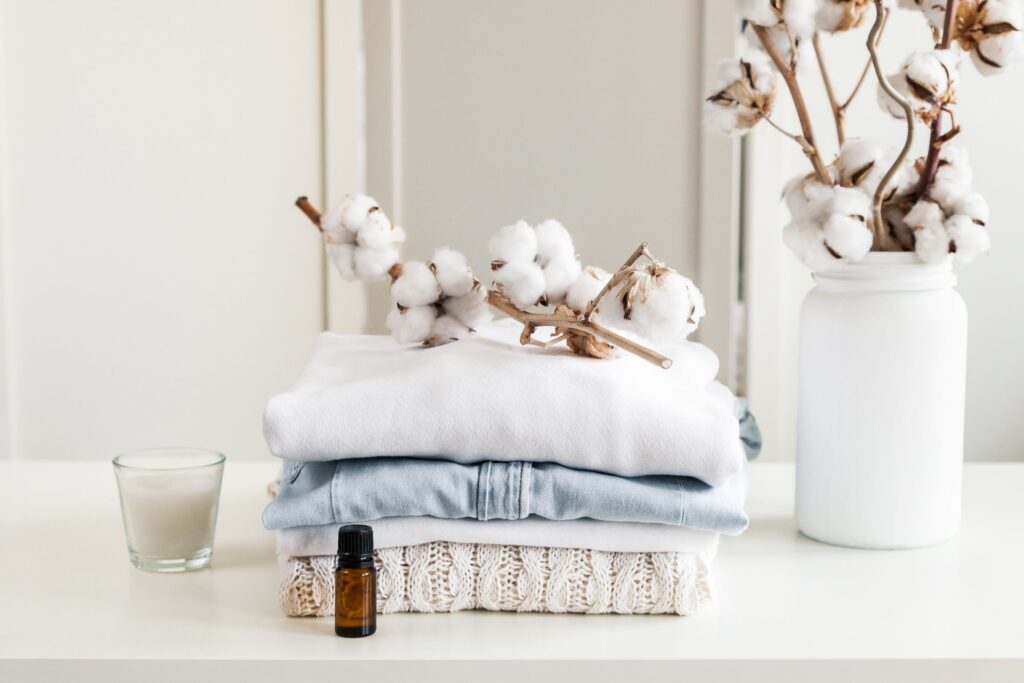At school, we’re not taught very many essential life skills, for example, how to apply for a mortgage, how to create a household budget, or how to look after your clothes.
Depending on our upbringing, some of us will be laundry and closet-care queens, whereas others are stumped when having to choose between bio and non-bio washing powder in the supermarket, and the care labels on garments look like a foreign language.
But the thing is, looking after your clothes well isn’t difficult, and it’s something worth investing your time in if you’re into fashion or if having a smart appearance is important to you.
“Opening up your closet should be like arriving at a really great party where everyone you see is someone you like.”
Amy Fine Collins
What a great analogy! Isn’t this what we all want from our wardrobe? I certainly do and I think you might too. A dream wardrobe is within reach for us all.
Why caring for our clothes is a very good idea.
Bottom line – If we want to look good, our clothes should look good.
In order for our clothes to wear well and last a long time, we need to take care of them and store them properly.
But before we delve fully into how to do that, firstly let’s look at the reasons your clothes might not be lasting well or looking good for long…
Do you fear for your own safety every time you open your wardrobe door? Is there an avalanche of clothes falling out on top of you when you pull something out to wear?
If, like me, you’re not blessed with a spacious walk-in closet or dressing room, you probably feel that you have too many clothes but nothing to wear. Somehow your wardrobe is always a mess and it’s impossible to keep it tidy. Can you relate?
Why is this?
I’m always saying it, consumerism is a HUGE problem and plays a big part in all of this. Most of us would admit to having too many clothes, my former self included. And I get it, buying clothes is fun.
But it’s just too tempting and easy these days, don’t you think? The real issue is that most of the time we’re shopping unconsciously and buying things too often that we really don’t need.
It’s just too easy to walk into the supermarket after work to pick up some milk and a loaf of bread and come out with new pjs, a pair of jeans and a dress for the weekend! It’s crazy and a little sad.
We’re not really taking the time to pick things we really love. Moreover, it’s become so easy to fill our closets and drawers with an abundance of things that we end up in a cycle of always wanting more. Contentment is a thing of the past it seems.
Unfortunately, I see the dark side of this in my work with clients. All the fun of clothes shopping has quickly become clutter that now feels burdensome.
Overstuffed drawers and too many clothes crammed into the wardrobe mean they end up disorganised, wrinkled, misshapen and unloved. A wardrobe that fails to inspire will not be helping you look your best as you head out the door each day!
So, what can we do about it?
“Buy less, choose well and make it last.”
Vivienne Westwood
I love this quote. It’s great advice and so simple.
An organised wardrobe makes your life easier and being able to see what’s in there is crucial to putting outfits together with ease. We don’t need more storage, we need less stuff! Creating space is your number one goal.
Looking after your wardrobe and taking care of your clothes so they last you for years is simple and easy when you follow the tips below.

How to look after your clothes
1. Buy less and choose high-quality. Become a conscious consumer. Put your needs before wants. Plan your wardrobe carefully and buy only what you need when you need it. Make sure any garment or accessory you are trading your hard-earned cash for is something you really really love. Fewer clothes mean less work.
2. Wash your clothes less frequently. Air them instead after wearing, except for underwear of course, and your clothes will last longer. Clothes that do not sit next to the skin can be worn many times without being washed. It’s better for the fabric, the environment and your pocket!
3. Follow the care instructions. Check the garment care labels carefully to ensure you are washing and ironing at the correct temperature. Dry clean only if absolutely necessary.
4. Wash your garments inside out and avoid overfilling the machine. This protects the fibres and any designs or embellishments on your garments from friction and damage.
5. Use the correct detergent. Biological laundry detergent is the best for stain removal and to keep whites white but colours will fade if washed regularly with it. It’s also not suitable for delicates as it is too harsh. Coloured clothes require a non-bio detergent to keep colours bright.
Some of the eco brands now have excellent laundry products which are gentler on your clothes and the environment.
6. Natural fabrics and delicates made of wool, cashmere and silk should be laundered using a specific gentle laundry detergent designed for wool and delicates, to protect them from harsh chemicals and keep them soft. Most delicates labelled as ‘dry-clean only’ can be washed on gentle, lower temperature cycles with delicate wash detergent.
7. Air dry if possible and keep tumble drying to a minimum. Tumble drying wears fabrics down and causes shrinkage.
8. Keep your wardrobe airy. Your clothes need to breathe. Ensure there is space between your garments and that the hangers can move freely on the rail. This will allow air to circulate and help moisture evaporate.
If you notice a musty smell, mould and mildew on your clothing or on the inside surface of your wardrobe, this is a sign that there are too many clothes packed in and the air is not circulating. Charcoal briquettes placed inside the wardrobe in the corners will absorb excess moisture.
9. Invest in good, matching clothes hangers. Wood, padded or my favourite velvet slimline design will ensure your clothes hang well and your wardrobe looks great. Make sure heavier items such as jackets and coats have sturdy hangers to help them keep their shape. Another point to note is that the ends of the hangers should not protrude too far past the shoulder seam or your garment may end up with stretched fabric in the sleeve area.
10. Create space. Sort out and edit your wardrobe regularly. Remove and pack away out-of-season items and donate any that you no longer wear and don’t want to keep. Storing away your bulkier, warmer jackets and knitwear will allow space for your summer dresses, jackets, skirts and tops.
11. Launder the clothing you want to pack away. Make sure everything is washed and completely dry, as moisture in dirty clothes will attract mould and stains will discolour over time. Body fluids such as perspiration attracts pests such as moths. Don’t waste time ironing before packing as the garments will get creased in storage. They will need to be ironed and laundered again to freshen them up after they come out of storage.
12. Use the correct storage. Seasonal items such as knitwear being stored for a while are best packed into vacuum bags which are airtight, compact and space-saving and offer good protection against moths.
Jumbo zipped storage bags are a good option and are widely available but it’s important to avoid overfilling the bags to make sure the garments can breathe. Plastic or fabric storage boxes can be good choices but avoid storing clothes for any length of time in containers made of wood or cardboard as these can be susceptible to moisture and can stain or discolour clothing. Moth larvae can chew through cardboard!
Extra special items like wedding dresses must be stored in an acid-free storage box to avoid yellowing of the fabric. Storage bags and boxes are best placed off the floor and away from damp.
For more on how to protect your wardrobe from moths, see my blog HERE.
13. Repair your clothes. Make do and mend isn’t just for wartime! Mending your clothes is an act of kindness towards them. It ensures that you will wear them for longer, lessen your consumption and throw less away.
These are my best tips and recommendations for nurturing your closet and looking after your clothes so you can enjoy them for years and years to come.
In conclusion, I really believe that looking after your clothes can have such a positive impact on your life. For example, getting dressed will be so much more enjoyable and much less stressful, and you’ll feel smarter and more put-together which will make you feel more confident in yourself – and all of these things have further positive knock-on effects on your life.
Enjoy your wardrobe!
Let me know if you found this helpful, and if you have any ideas or suggestions for future blog posts, please send them my way.

